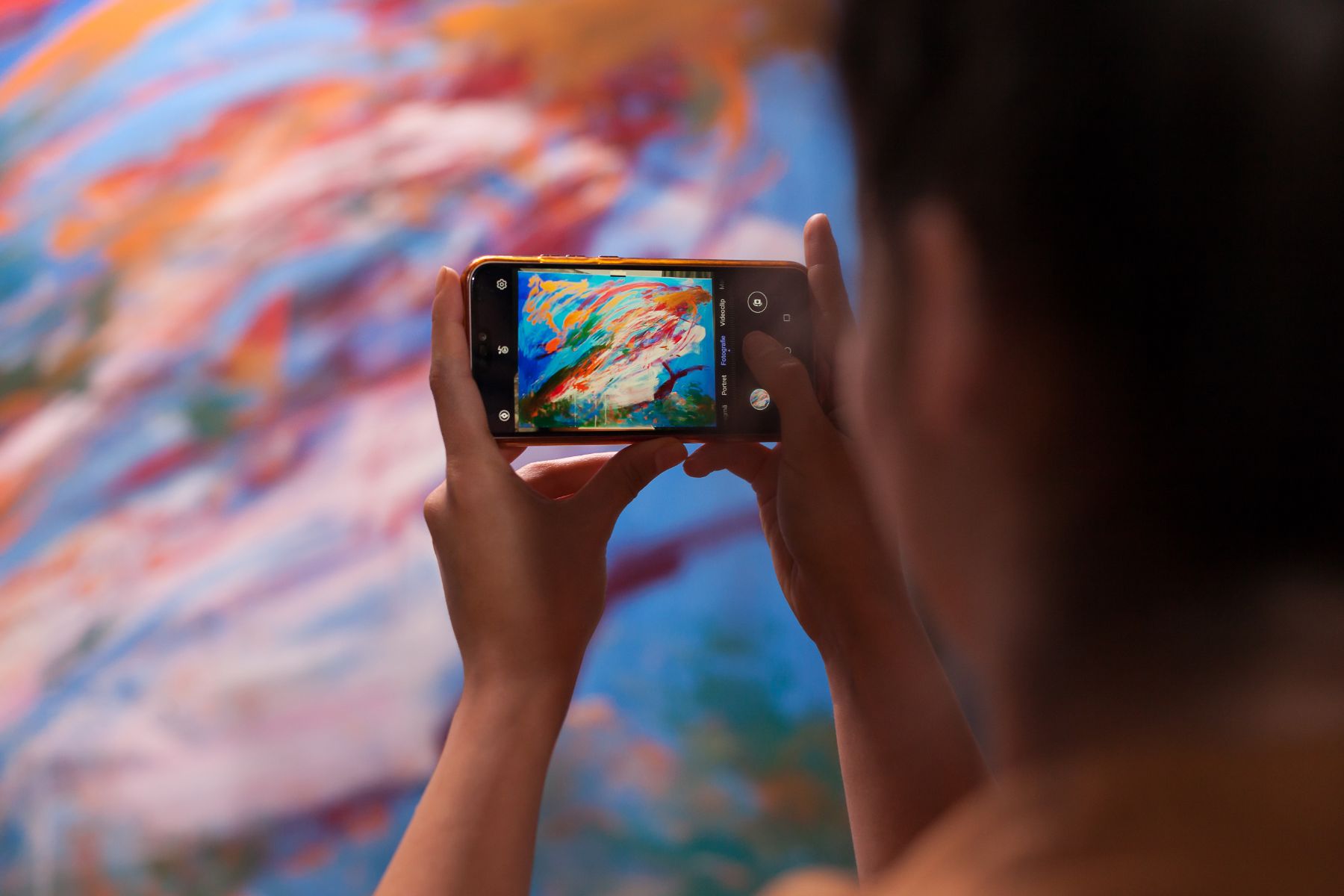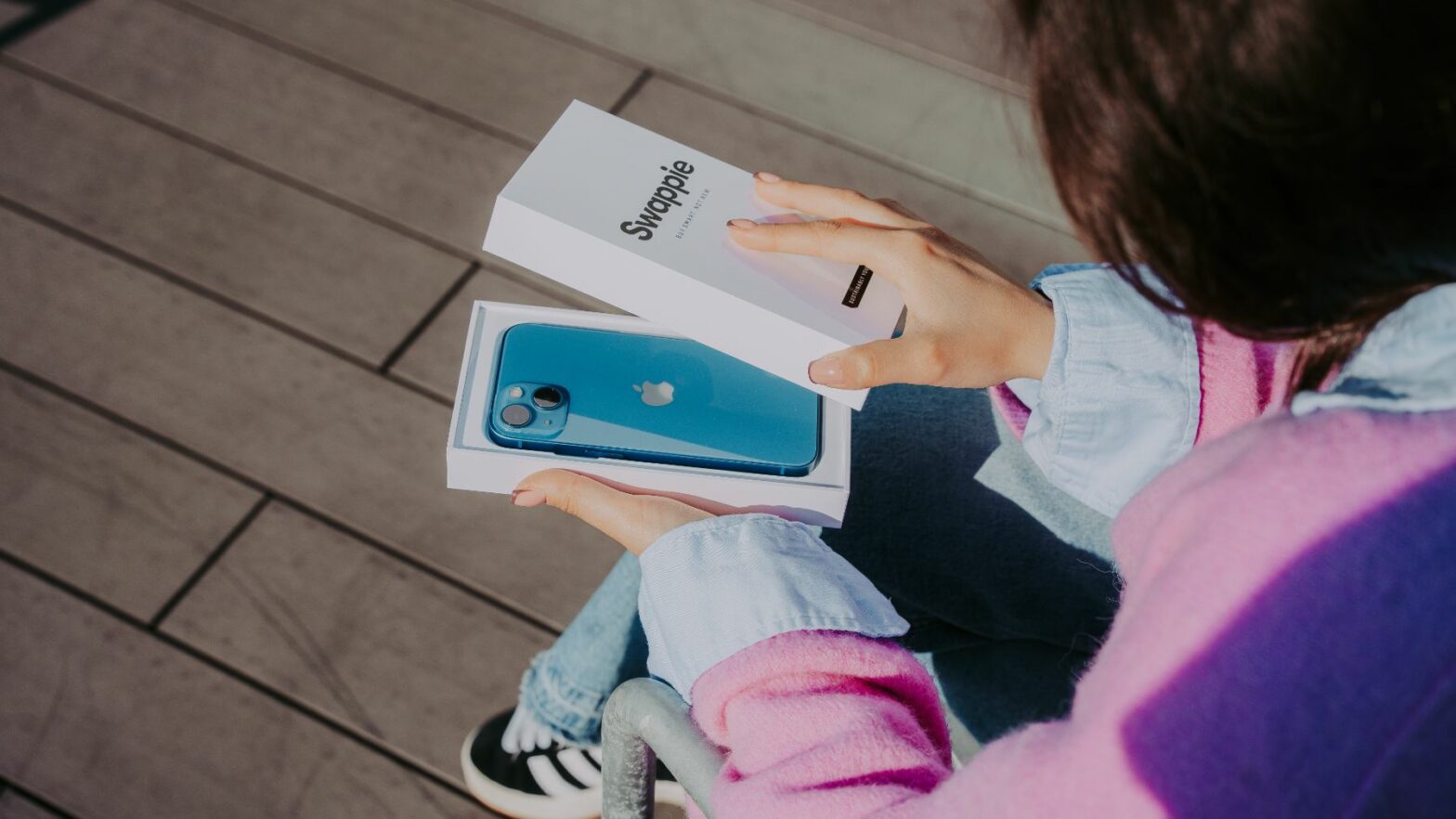Does the iPhone 14 still hold its value and appeal in 2025? We have inspected various aspects of the device, to answer this question. This article delves deep into everything relating to the iPhone 14, including:
- Initial release price
- iPhone 14 Model comparison
- Camera capabilities
- Chip performance across different models
- Battery performance
Initial release price
The iPhone 14 series was introduced with starting prices that reflected Apple’s ongoing commitment to keep pushing smartphone capabilities forward. The iPhone 14 base model was the first to break the €1,000 threshold in Ireland:
| iPhone 14 | iPhone 14 Plus | iPhone 14 Pro | iPhone 14 Pro Max | |
| Price at Launch (Ireland) | €1,029 | €1,179 | €1,339 | €1,489 |
iPhone 14 model comparison
There’s a wide breadth of options within the iPhone 14 series, to suit every need. Here’s a comparison across models highlights the distinctions in size, display, and other key features:
| Feature | iPhone 14 | iPhone 14 Plus | iPhone 14 Pro | iPhone 14 Pro Max |
| Display | 6.1-inch | 6.7-inch | 6.1-inch | 6.7-inch |
| Chip | A15 Bionic | A15 Bionic | A16 Bionic | A16 Bionic |
| Camera | Dual 12 MP | Dual 12 MP | Triple 12 MP + LiDAR | Triple 12 MP + LiDAR |
| Design | Aluminum | Aluminum | Stainless Steel | Stainless Steel |
Much like their prices, there’s a wide variance in features across the iPhone 14 range.
Camera capabilities
The iPhone 14 series boasted enhancements in its camera system, aimed at delivering superior photography experiences. Here’s a comparison of the camera capabilities across the models.
| Feature | iPhone 14 & 14 Plus | iPhone 14 Pro & Pro Max |
| Main Camera | 12 MP Wide | 12 MP Wide (larger sensor) |
| Ultra-Wide Camera | 12 MP Ultra-Wide | 12 MP Ultra-Wide with autofocus |
| Telephoto Camera | N/A | 12 MP Telephoto |
| Night Mode | Yes | Yes |
| Portrait Mode | Yes | Yes, with advanced bokeh |
| ProRAW | No | Yes |
| ProRes Video | No | Yes |
| Cinematic Mode | Yes | Yes, with enhanced depth control |

This grid highlights the significantly improved camera specs offered in the Pro models. These powerful cameras opening up a range of creative possibilities for enthusiasts and professionals alike.
Model chip performance
The processing power of the iPhone 14 series is another critical factor to consider. This goes especially for those who use their phone for more high-powered functions like gaming or video editing. The table below compares the chip performance across different models.
| Feature | iPhone 14 & 14 Plus | iPhone 14 Pro & Pro Max |
| Chip | A15 Bionic | A16 Bionic |
| CPU Cores | 6-core | 6-core |
| GPU Cores | 4-core | 5-core |
| Neural Engine | 16-core | 16-core |
| Transistors | 15 billion | 16 billion |
The A16 Bionic chip in the Pro models offers a slight edge in GPU performance. This can enhance gaming and high-performance applications.
Battery performance
Battery life is a key factor for phone users, and the iPhone 14 series really aimed to deliver on this aspect.
| Feature | iPhone 14 | iPhone 14 Plus | iPhone 14 Pro | iPhone 14 Pro Max |
| Video Playback | Up to 17 hours | Up to 20 hours | Up to 22 hours | Up to 28 hours |
| Audio Playback | Up to 75 hours | Up to 80 hours | Up to 75 hours | Up to 95 hours |
| Fast Charging | Yes, up to 50% in 30 min | Yes, up to 50% in 30 min | Yes, up to 50% in 30 min | Yes, up to 50% in 30 min |
The Plus and Pro Max models stand out for their extended battery life, catering to heavy users and travellers.
Differences from iPhone 13: Key upgrades and considerations
The iPhone 14 introduced several refinements over the iPhone 13, marking some big advancements in Apple’s smartphone lineup. Notable differences include an improved camera system in the iPhone 14. Its stronger low-light performance and custom photo styles for a more personal touch. The iPhone 14’s graphic performance also saw a slight improvement, with the A15 bionic chip boosting its GPU.
Comparing the iPhone 14 to its predecessor, we see that battery life improvements were subtle between models. Even so, the iPhone 14 series did benefit from limited optimisations, allowing users to enjoy longer usage times between charges.
Design-wise, the iPhone 14 maintained a similar aesthetic to the iPhone 13. Some new colour options and slight adjustments to the camera arrangement on the back give it a refreshed look.
However, for iPhone 13 users, the leap to iPhone 14 may not feel like a major improvement. The core features, including the display technology and overall design language, have remained consistent. This suggests that the iPhone 14 serves as a more of a refinement than a revolution.
The iPhone 14 may be a solid choice for those still using older phone models or other brands. That said, the decision is not so clear for iPhone 13 owners. Whether the iPhone 14 is worth buying in 2025 is highly subjective, and heavily depends on individual needs. It also depends on the value placed on experiencing the latest technological improvements.
The iPhone 14 boasts several impressive features that make it a compelling choice. Learn more about what sets it apart in our iPhone 14 features breakdown. This detailed overview highlights the technological advancements, user-friendly design, and enhancements that Apple has incorporated, ensuring you understand why the iPhone 14 remains a favourite among tech enthusiasts.
Transitioning to iPhone 14 in 2025: A leap for users from older models or other brands
For individuals transitioning from older iPhone models or switching from different smartphone brands in 2025, the iPhone 14 is a very enticing upgrade option. This segment of potential buyers is poised to experience a significant leap in technology, encompassing everything from enhanced processing power and battery efficiency to advanced camera systems and the robust ecosystem Apple offers.
From older iPhone models
Users upgrading from an iPhone model predating the iPhone 12 will find the iPhone 14 a substantial upgrade. The introduction of 5G connectivity, A15 Bionic chip, and improved dual-camera system offers a tangible boost in speed, efficiency, and photography capabilities.
Additionally, the iPhone 14’s OLED Super Retina XDR display represents a significant step up in visual quality, offering brighter colours, deeper blacks, and more detailed images compared to the LCD displays of older models. The longevity promised by Apple’s support in software updates further cements the iPhone 14 as a smart choice for those looking to stay within the Apple ecosystem while gaining access to modern features without stretching to the latest models’ premium prices.
Switching from other brands
For those considering switching from Android or other smartphone brands in 2025, the iPhone 14 is an ideal entry into the Apple ecosystem. The seamless integration between Apple devices, coupled with the privacy-centric approach of iOS, provides a compelling argument for the switch. The iPhone 14’s user-friendly interface, consistent performance, and access to a vast library of apps and services through the App Store are significant draws.
Moreover, features like iMessage and FaceTime offer unique communication benefits exclusive to Apple devices, adding to the attraction of transitioning to an iPhone. The robust build quality and emphasis on user security are additional factors that make the iPhone 14 an attractive option for those looking to experience what Apple has to offer.
Embracing refurbished: Economical and eco-friendly advantages
Cost savings
One of the primary incentives for choosing a refurbished iPhone 14 is the substantial savings it offers. Refurbished models, having been previously owned and restored to full functionality, often come at a reduced price compared to brand-new units.
This price reduction does not equate to lower quality; refurbished iPhones undergo rigorous testing and repairs as needed, ensuring they meet Apple’s high standards. For budget-conscious consumers or those who prefer not to invest heavily in the latest technology, refurbished iPhones are an excellent option.
Environmental impact
Beyond the financial benefits, opting for a refurbished iPhone 14 contributes significantly to environmental conservation. Purchasing refurbished electronics reduces the demand for new device production, which in turn minimises resource extraction and energy consumption associated with manufacturing processes.
Furthermore, it helps in diverting electronic waste from landfills, where it can lead to toxic emissions and soil contamination. By choosing a refurbished model, consumers actively participate in a circular economy, extending the lifecycle of electronic devices and fostering sustainable consumption practices.
Performance and reliability
Concerns around the performance and reliability of devices are common, but often misplaced when it comes to certified refurbished products. These devices are not only thoroughly inspected for any hardware or software issues but are also covered by warranties that provide a safety net for buyers.
Consequently, consumers can enjoy the advanced features of the iPhone 14, such as its improved camera system, enhanced battery life, and powerful A15 Bionic chip, without compromising on performance or reliability.
Conclusion
Evaluating the iPhone 14 in 2025 involves considering its initial value proposition, how it stacks up in terms of technology and features against newer models, and whether its performance and camera capabilities meet current standards.
With competitive pricing at launch and a range of options within the series, the iPhone 14 remains a compelling choice, especially for those upgrading from older models or switching from other brands.
Its balance of performance, camera excellence, and battery life ensures that the iPhone 14 can still be a smart purchase in 2025 for users seeking quality and reliability in their smartphone experience.
